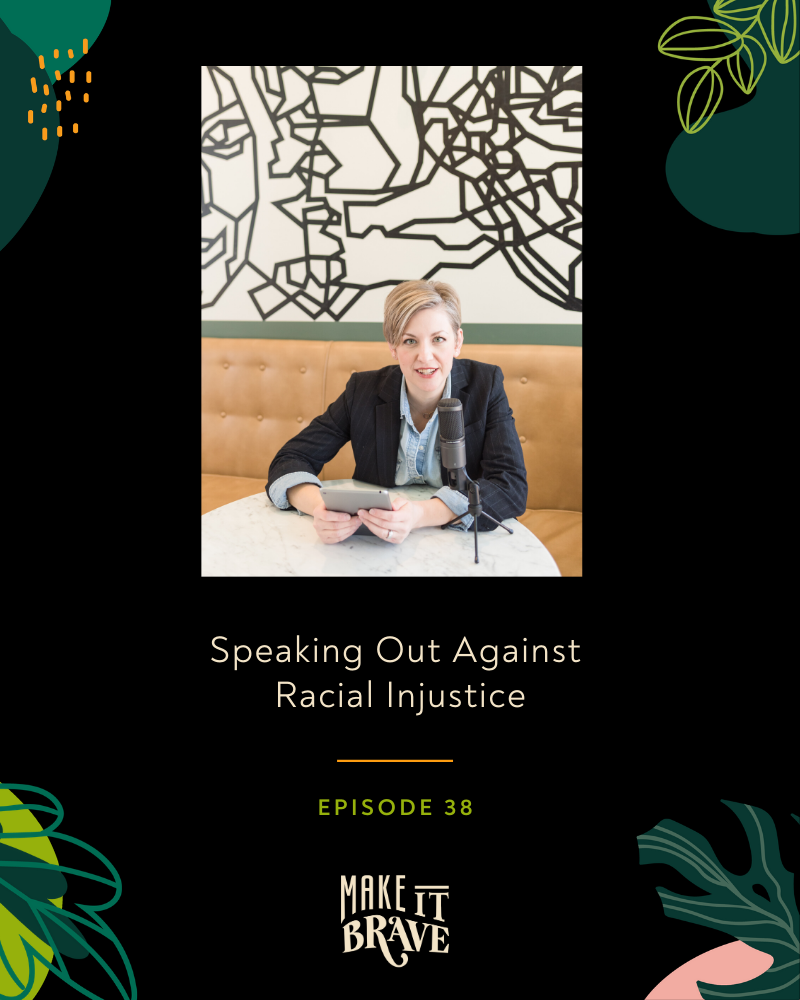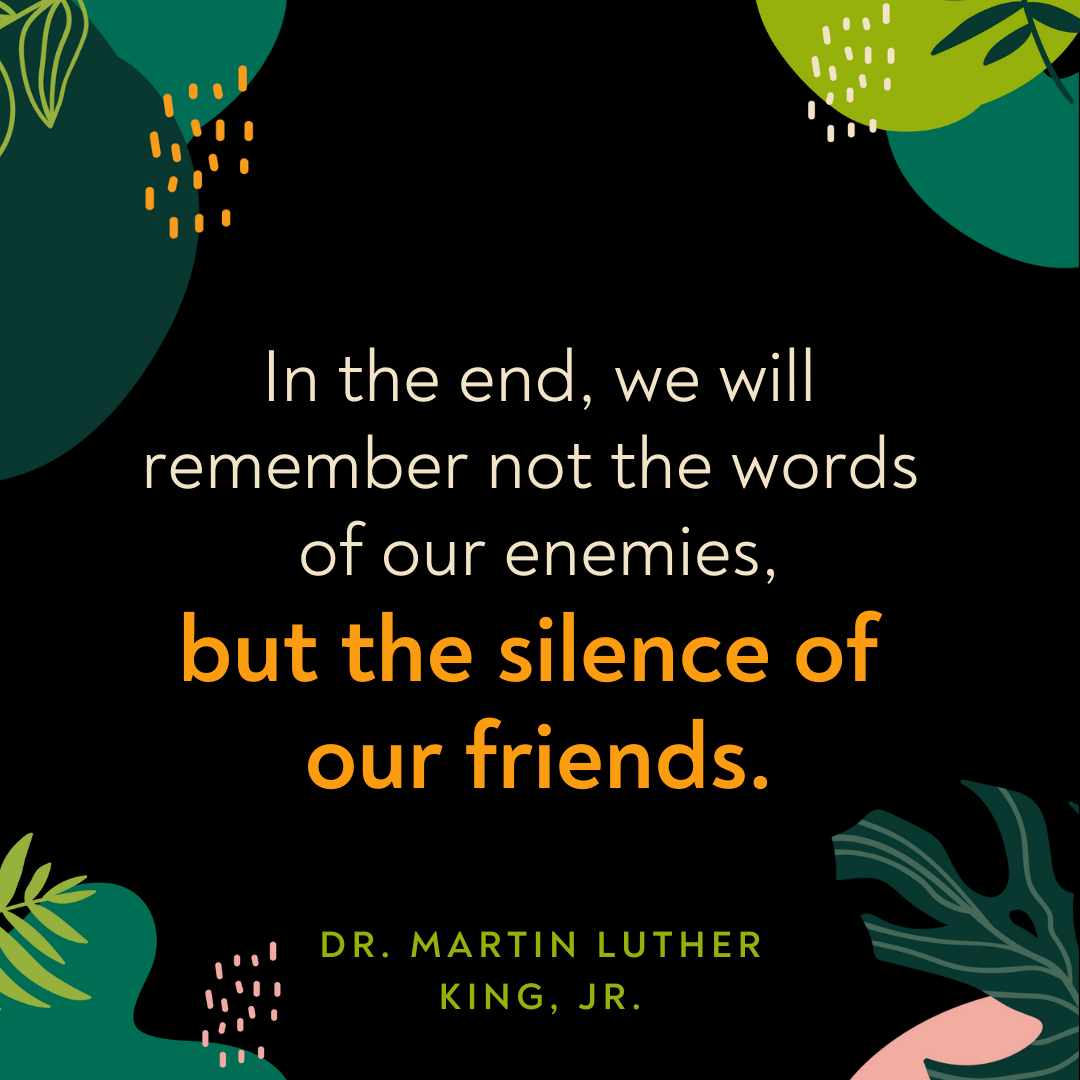Speaking Out Against Racial Injustice

I am a privileged person.
And it has nothing to do with how much money I make, the car I drive or the house I live in.
It has everything to do with the color of my skin.
As a white person, I have inherent privileges that many people do not.
No one looks at me suspiciously when I’m in a store.
No one doubts my motives when I’m walking down the street.
No one questions my presence or calls the police when I’m around.
No one hesitates to grant me a loan or question my credit.
But for plenty of people that’s not the case––simply due to the color of their skin.
And that’s not okay.
Understanding White Privilege and Systemic Racism
This is the concept of white privilege. Like many white people people, I jolted back when I first heard this phrase. It was jarring and uncomfortable. And immediately, I became defensive.
After all, I’m not extremely wealthy. I grew up on a farm and had humble beginnings. I’ve always had to work hard and I wasn’t born with a silver spoon in my mouth.
I thought this term didn’t apply to me.
But, as I finally looked deeper, I realized I was wrong.
White privilege isn’t a character assignation against all white people. It doesn’t mean that all white people are bad. It simply means that I, and other white people, have advantages and conveniences in life due to the color of our skin.
Most of those privileges are things white people have never given much thought to because they come as part of being the majority.
For instance, as I white person, I can easily find products geared toward my skin color and hair type. Throughout my career, I’ve worked with people who look like me and I’m rarely in a room where I’m the only white person. I don’t have to look hard to find people of my skin color portrayed in books or in the media.
No one questions my credit when trying to buy a car, a house or get a credit card. I don’t get pulled over because I “look” dangerous. If I need medical attention, I don’t have to fight to get the care I need.
As a white person, it’s easy to take these things for granted. These are privileges I didn’t earn. I simply have them because I’m white. Because I am in the majority. For the longest time, I didn’t realize this. I was blind to it. Perhaps, like me, you might have assumed that everyone has these same privileges.
But that’s simply not the case.
Our country and our world is filled with systemic racism that makes it harder for people of color to access the same privileges I have. When you are part of the minority, this reality is abundantly clear.
The Death of Innocent Black People is Prevalent
The most recent example of this is the shooting of Ahmaud Arbery, a 25-year old black man who was innocently gunned down by two white men while taking a run through a suburban Georgia neighborhood.
Would this have happened if Ahmaud were white?
Probably not.
Or, how about the killing of 26-year-old Breonna Taylor? She was shot and killed when police officers raided her house in the middle of the night without knocking. Breonna’s boyfriend, a licensed gun owner, fired shots when the police busted into the house thinking their house was being broken into. He was arrested.
Would this have happened if Breonna and her boyfriend were white?
Again, probably not.
There are countless stories like this. These are just the most recent, visible and atrocious examples of the racial bias that exists in our country.
In the past few weeks, you may have heard about these cases especially as video footage and more details have emerged. As more people discovered what happened, there has been a lot of outrage and calls for justice for these two precious, innocent black people whose lives were cut incredibly short.
You may have seen your social media feed filled with images of people running 2.23 miles to commemorate Ahmaud’s birthday and saying “I run with Ahmaud.”
You may have seen people signing petitions or calling government officials to demand justice in these cases.
But, you wouldn’t have seen any of that from me.
I didn’t run 2.23 miles.
I didn’t sign the petitions.
I didn’t call government officials.
I didn’t even share about it on social media.
I did nothing.
So, how can I say I believe in speaking out against racial injustice when I do nothing but shake my head and move on?
The Problem with Staying Silent
This all came into focus for me when I saw a friend share on social media how disappointed she was that so few of her white friends were posting about the Ahmaud Arbery shooting. In the black community, commentary about it was everywhere.
But her white friends?
They stayed silent. And she shared just how badly that hurt.
While her comments weren’t targeted at me specifically, I realized just how detrimental my silence could be.And that broke my heart.
After all, as much as I believe in fighting against injustice, my inaction shows otherwise.
Why didn’t I speak up? Why didn’t I talk about it on social media?
I have plenty of excuses, but none of them are good ones.
Plenty of excuses, but not good ones
Here’s a sampling of the things that went through my mind when I saw the news about Ahmaud Arbery and every time a similar story surfaces about racism and injustice against the black community:
- Social media isn’t the best place to have sensitive and difficult conversations.
- Plenty of other people are sharing about it, what good will it do if I share?
- I’m overwhelmed by all of the injustice in the world. Where do I start?
- Talking about it won’t change people’s minds.
- I don’t want to argue with people.
- I have plenty of other things to worry about.
- I’m tired and worn out. I don’t have time for this––especially during this pandemic.
- I don’t know what to say. What if I say the wrong thing?
If you look at this list, what does each of these things have in common?
It’s all about doing what makes ME feel comfortable. It’s all about MY feelings, MY needs, MY comfort. It has nothing to do with actually advancing the cause or standing up for injustice.
When I look at that list, I realize how selfish and self-centered I’ve been. And if I were to be truly honest? I would say that I’ve been afraid.
When I look at that list, I see that I am more interested in protecting my own image and self-interest than sticking my neck out for the lives of other people.
Essentially, my silence is complicity.
My silence is a privilege that people of color do not have.
My silence means I’m no better than the people who are committing horrible acts of racism.
And gosh, it really, really hurts to admit that.
Sure, I can try to make myself feel better by thinking about the causes I support, both with my time and my money. But in all honesty, those things are easy to do.
Using my voice is much, much harder.
Silence Can Hurt
What I realized in the wake of the Ahmaud Arbery murder, is that by sitting idly by, not only have I not stood up for injustice, but I have let my friends down.
This quote from Dr. Martin Luther King Jr. articulates this perfectly:
“In the end, we will remember not the words of our enemies, but the silence of our friends.”

To be honest, I didn’t realize just how hurtful my silence could be.
By not speaking out, my friends in the black community may think that I don’t support them. They may think that I believe the actions of two white men who gunned down an innocent black man while running is okay. They may think that I condone plain-clothed police officers entering a home without knocking, leading to the killing of Breonna Taylor.
How would they know that I disagree with these actions if I stay silent?
It has become clear to me that I need to do better. We all need to do better.
Social Media as a Starting Point
As a marketer, I’ve always believed in keeping things professional on my social media channels. I don’t talk about politics. And for the longest time, I wasn’t vulnerable or overly personal online. And I most definitely don’t discuss race or social justice. That’s why my feed is largely filled with pictures of my cute toddler, along with posts about the work I do at Blue Kite or with this podcast. In other words, my social media feed is decidedly SAFE.
And I see now, that it’s time to change that.
I’m not saying that social media is the answer. But, if I can use my voice to promote my work or support business owners, why can’t I use it to speak out against the terrible and cruel things happening in the world?
I think sometimes that social media feels like cheap activism, so that’s why I haven’t done it. But, starting there is better than nothing. Speaking up on social media channels and on this very podcast shows people where I stand––my friends, my clients, my colleagues and anyone who wants to work with me.
And I see now how important that is.
But we shouldn’t stop there. Perhaps that’s just where it should start.
So, what else can we do?
Stepping Up & Speaking Out Against Racism
I don’t have all of the answers, but here are some ideas and things I’m going to focus on.
1. Ongoing education.
To start, we have to educate ourselves.
A few years ago, I joined the Be the Bridge to Racial Unity Facebook group. That group helped me get a better understanding of racial oppression, white privilege, microaggression and a whole lot more. And to be honest, I still have a whole lot to learn.
I think, as white people, it’s our job to become more aware. And education is a great first step. If all of this is new to you, I highly recommend this group and this nonprofit organization. Their website has many valuable resources you can check out. I’ll have links to this in the show notes. I hope you will join me in reading and learning more.
Another great resource is the Thrive Together Leadership Conference that’s happening May 26 – 30. This virtual event is geared toward creating inclusive workplaces. My friend and a previous guest on the show, Courtenay Rogers, is on a panel discussion that I think will be particularly helpful entitled, Becoming an Ally: A Conversation on the Role of White Women in an Inclusive Workplace. I’ll have a link for registering for this event in the show notes. And if you’d like 20% off your registration, you can use the code: ALLY.
Also, Danielle Ali, a member of the Make it Brave Facebook Community recommended a couple of other great resources to check out. One is Rachel Cargle’s work. She has a terrific website and a monthly-based membership program called The Great Unlearn. She’s sharing resources to help you unpack systemic racism and you get access for as little as $5 a month.
Danielle also recommended Here Wee Read, which is a tremendous website with recommendations to diverse and inclusive books for kids. We love reading in our house and I’m looking forward to using this resource to expand our book collection and our minds.
There are tons and tons of resources available. We just have to look for them and make the conscious effort to read, learn and understand. This list is simply a place to start and I hope you’ll check out these resources.
2. Develop and show empathy.
If you’ve been listening to this podcast for awhile, you know that I am a big proponent of empathy. And when it comes to the topic of racism, I think we need to adopt a posture of empathy.
Stepping up and speaking out becomes easier to do if you can be empathetic toward what people of color might be feeling.
To be clear, I’m not talking about sympathy. Sympathy means feeling sorry for someone or showing pity for someone. When you show sympathy, it’s easy to shake your head and move on.
But empathy is feeling WITH someone. It’s feeling WITH the mothers of Ahmand and Breonna who lost their children way too soon in an extremely violent way. Can you imagine what they must be feeling?
Or what about the black community at large? Can you imagine what it must feel like to be overcome with fear that your mother, father, son, daughter, sister or brother might be the next victim to a hateful crime like this? It makes my heart hurt to think of the fear and pain that mothers must be feeling every time their children leave the house.
When you start to look at things from an empathetic lens, it changes everything. It makes it harder to stay silent or do nothing. Because when you attempt to feel the pain that people of color might be feeling right now, you can’t help but speak up.
To me, empathy starts with listening, paying attention and having a bent toward learning and trying to understand.
If we are constantly becoming defensive or closed off, we will never learn. And it will be that much harder to become empathetic.
So, if you want to show empathy and develop a better understanding of how people who are different than you might be feeling, pay attention and listen more. Listen before you speak. Truly, deeply listen. Then seek to understand.
And then try to put yourself in the other person’s shoes. Doing that changes my perspective dramatically. Maybe it will for you too.
3. Take action.
And finally, and most importantly, we need to take action. I need to take action.
There are a lot of ways we can take action. Here are some things I’m going to do:
- Speak up––online and in person––when I see injustice, even if it’s uncomfortable or hard;
- Use my buying power to support minority-owned businesses;
- Continue to showcase and celebrate black people on this very podcast;
- Donate to causes that support the black community;
- Volunteer my time to organizations that stand for equality and justice; and
- Advocate for the rights of black and brown people by calling government officials––both to fight for injustice and change oppressive laws.
Sometimes, I think I feel like I need to know everything and become far more educated about something before I feel qualified to talk about it.
But, as I mentioned earlier, my silence isn’t helpful. I’m realizing it’s far better to say or do something, even if it might be the wrong thing, instead of nothing at all. That’s why I’m talking about racial injustice on the podcast today.
This topic matters.
And my voice matters. So I’m going to use it.
Even if I don’t change one mind, one law or one injustice.
Because by staying silent, I show what matters most to me––my own comfort and wellbeing instead of the rights of people around me.
Bravely Speak Out Against Racism
I started this podcast to be braver. And for me, using my voice to stand up against injustice and racism, is one way I can become more courageous.
And maybe, just maybe, if more people stood in the chorus to demand for equality and justice, change will happen.
Maybe we can create a world where our brothers and sisters in the black community don’t have to fear for the safety of their loved ones because of the color of their skin. Maybe our world will become a place where difference is celebrated instead of feared. Maybe we can create a world where everyone has the same access, same rights, same freedoms, same choices.
I certainly hope that’s possible. But, it won’t be unless we all become a little braver and use our voices to stand up against injustice.
One voice doesn’t change things. But hundreds, thousands and millions of voices do. But, it takes each of us to step up to make that happen.
We might not be able to tip the scales of justice on our own, but we can do it together.
And I sure hope you will join me.

Laura,
Very well said/written. I feel fear is one reason I often fail to voice–out loud–when I see this type of injustice. Thanks for giving ideas to improve.
I’m right there with you, Gingy. It’s hard to admit that fear is what keeps us silent. Thank you for being brave enough to admit that. I hope we can both find ways to be braver in standing up against injustice.
Laura this gives me so much hope. Thank you for desiring to walk the talk. Blessings.
Thank you, Daphne. That means to world to me. I know I need to do to better and this is a start!